News
| May 26 2025 | Mr. Ratthaphong Phumphu, Ton, successfuly finished his PhD defense talk at Khon Kaen University in May. As an examiner, I visited there and shared wonderful hours with friends in Thailand.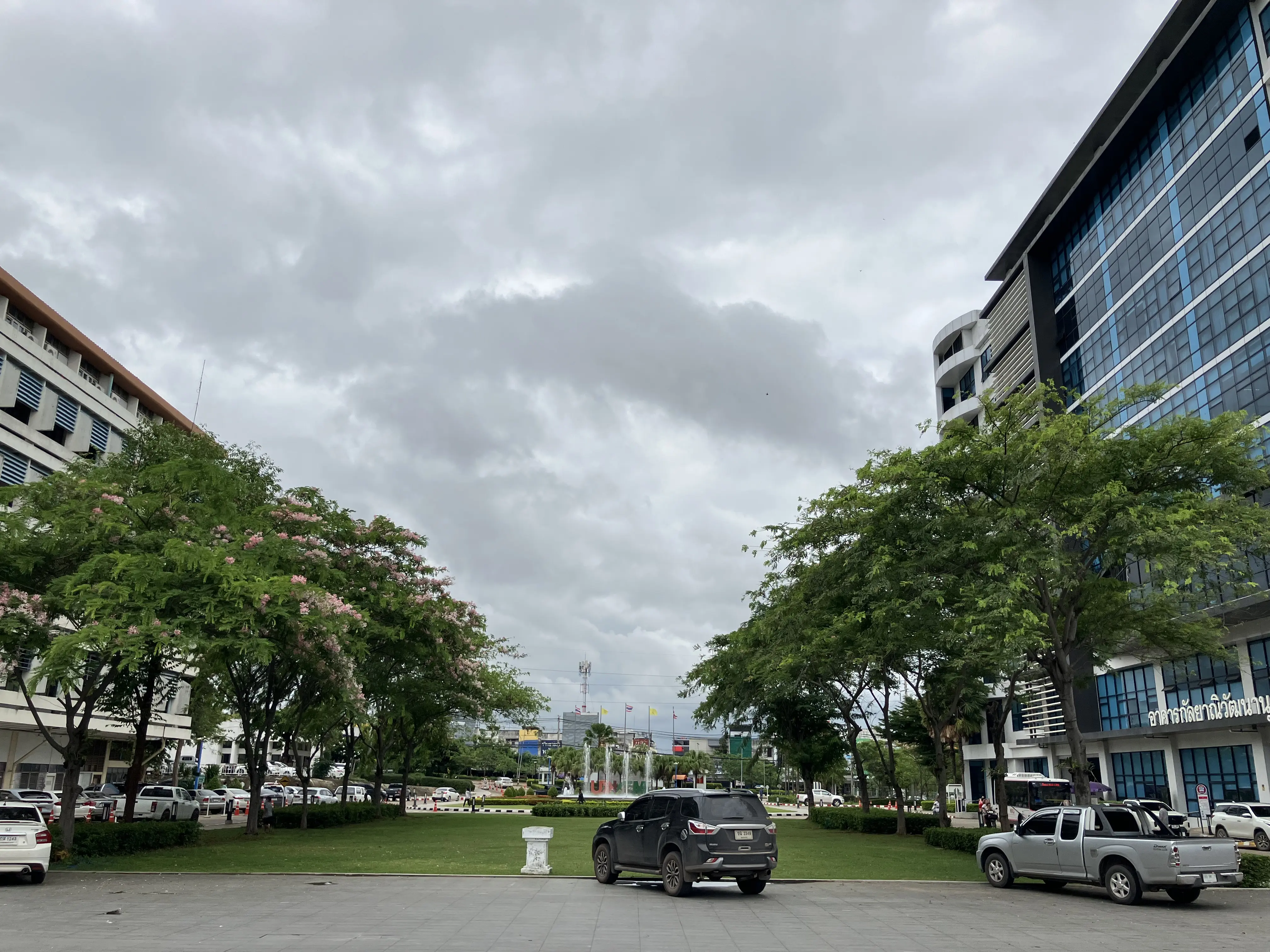
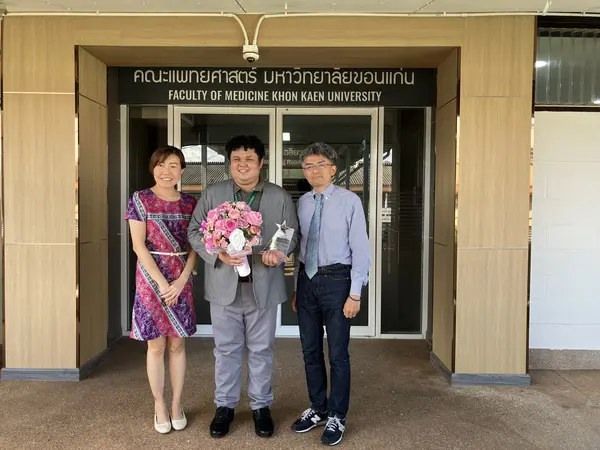
|
| March 3 2025 | We get an AMED grant for promoting an international collaboration between Japan (PI, Dr. Iwama; co-PI, Sashida) and France. Our proposal is to understand roles of non-canonical PRC2 in normal and malignant hematopoiesis. |
| February 20 2025 | I hosted the last international symposium for our core-to-core program: Integrative approach for normal and malignant hematopoiesis. For its contents, please refer to those pages. |
| more |
Research
Research field:
Hematopoietic stem cell, Transformation, Transcription factor, Chromatin and Epigenome.
Research Interests:
To understand the regulatory mechanism of normal and leukemic stem cell: Myelodysplastic syndrome (MDS) is a group of clonal disorders of hematopoietic stem cells characterized by ineffective hematopoiesis, peripheral blood cytopenias, dysplastic blood cells and a predisposition to acute myeloid leukemia (AML). Given that MDS cells are phenotypically and genetically heterogeneous, the molecular mechanism of the development of MDS is incompletely understood. Recent genome sequencing studies have identified various somatic mutations of epigenetic modifiers in patients with myeloid malignancies. Interestingly, the mutations in epigenetic modifiers, which were often seen in MDS cells, were also identified in blood cells of healthy aged adults. Indeed, aging is known to increase the risk of myeloid malignancies including MDS, conceivably due to environmental stress-induced genetic and/or epigenetic alterations. Therefore, the accumulation of epigenetic alterations appears to provide pre-MDS stem cells and facilitate the initiation and propagation of MDS. Our laboratory is working to determine how genetic and epigenetic alterations impair normal hematopoietic stem cell and also promote the development of myeloid malignancies by utilizing comprehensive approaches (e.g. genetically modified mice, CRISPR/Cas9 genome editing, and sequencing analysis such as ATAC-seq and Chromosome conformation capture/Hi-C). Several areas of current investigation on normal and malignant hematopoiesis in the lab include:
Aim 1) Understanding how chromatin alterations drive the development of myeloid malignacies
I had elucidated the molecular mechanisms by MLL1 mutants in Cincinnati and in Chiba (Zhang Y et al. Blood 2012; Tanaka S, et al Blood 2012). At Dr. Iwama’s lab in Chiba University, I was the first to report the stem cell regulatory mechanism of SF3B1, a splicing factor, which is frequently mutated in clonal hematopoiesis in aged people and blood cancer (Wang C, et al. Blood 2014). Furthermore, we established several myelodysplastic syndrome models using genetically engineered mice with EZH2 and TET2, which are frequently mutated in hematopoietic tumors, in order to elucidate the pathogenetic basis of the disease due to epigenomic dysregulation (Muto T, et al. J Exp Med 2013; Sashida G, et al. Nature Commun 2014; Mochizuki-Kashio M, et al. Blood 2015). At Kumamoto University, as a PI, I have been elucidating the pathogenetic basis of myeloid malignancies and rare leukemia, focusing on chromatin dynamics and enhancer dysfunction (Sashida G, et al. J Exp Med 2016; Wang C, et al. J Clin Invest 2018; Kubota S, et al. Nature Commun 2019; Yokomizo-Nakano T, et al. Cancer Res 2020; Bai J, et al. Oncogene 2021; Kawano S, Cancer Sci 2023; Morii M, et al. Leukemia 2024). We have been also working on biology of trisomy cells, such as trisomy 8 and trisomy 21, and investigating how trisomy impacts on stem cell function and drives development of diseases in various tissues, such as blood and brain.
Aim 2) Understanding how environmental stresses drive the development of myeloid malignacies
We generated several inducible leukemia models such as a clinically relevant RUNX1-ETO leukemia murine model (Abdallah MG, et al. Leukemia 2021) and study the molecular mechanisims of age-dependent development of leukemia, such as MLL-fusion leukemia. Recently, we demonstrated that a prior stimulation with bacterial and viral products followed by loss of the Tet2 gene facilitated the development of MDS via up-regulating the target genes of the Elf1 transcription factor and remodeling the epigenome in hematopoietic stem cells in a manner that was dependent on Polo-like kinases (Plk) downstream of Tlr3/4-Trif signaling, but did not increase genomic mutations (Yokomizo-Nakano T, et al. J Exp Med 2023). High mobility group AT-hook 2 (Hmga2) is highly expressed in fetal hematopoietic stem cells and activates the transcription of stem cell genes. We elucidated the molecular mechanisms by which HSCs drove hematopoietic regeneration under stress conditions by activating the expression and function of Hmga2 (Kubota S, et al. EMBO J 2024). Based on those findings, we have been investigating how environmental factors, such as infection and inflammation, drive the development of myeloid malignacies in terms of chromatin alterations and trying to provide therapeutic targets for lethal blood cancer.
Biography:
Goro Sashida recieved his MD from Tokyo Medical University in 1996. He then undertook his PhD in medicine under the supervision of Dr. Kazuma Ohyashiki at the Department of Hematology, Tokyo Medical University in 2002. In 2005, he joined Dr. Stephan Nimer's laboratory at Memorial Sloan-Kettering Cancer Center (New York, USA; Dr. Nimer moved to Miami). In 2009, he moved to Dr. Gang Huang's laboratory at Cincinnati Children's Hospital Medical Center (Ohio, USA; Dr. Huang moved to San Antonio), where he became interested in the study of epigenetic alteration in leukemia. In 2010, he went back to Japan and joined Dr. Atsushi Iwama's laboratory at Chiba University (Chiba, Japan; Dr. Iwama moved to Tokyo). In December 2014, he established his own research group "Laboratory of Transcriptional Regulation of Leukemogenesis" at International Research Center of Medical Sciences (IRCMS), Kumamoto University, and in 2016 he was promoted to Professor. In 2025, he was appointed as a vice director of the IRCMS, Kumamoto University, and a visiting researcher/a project leader-elect at Tokyo Metropolitan Institute of Medical Science.
Members
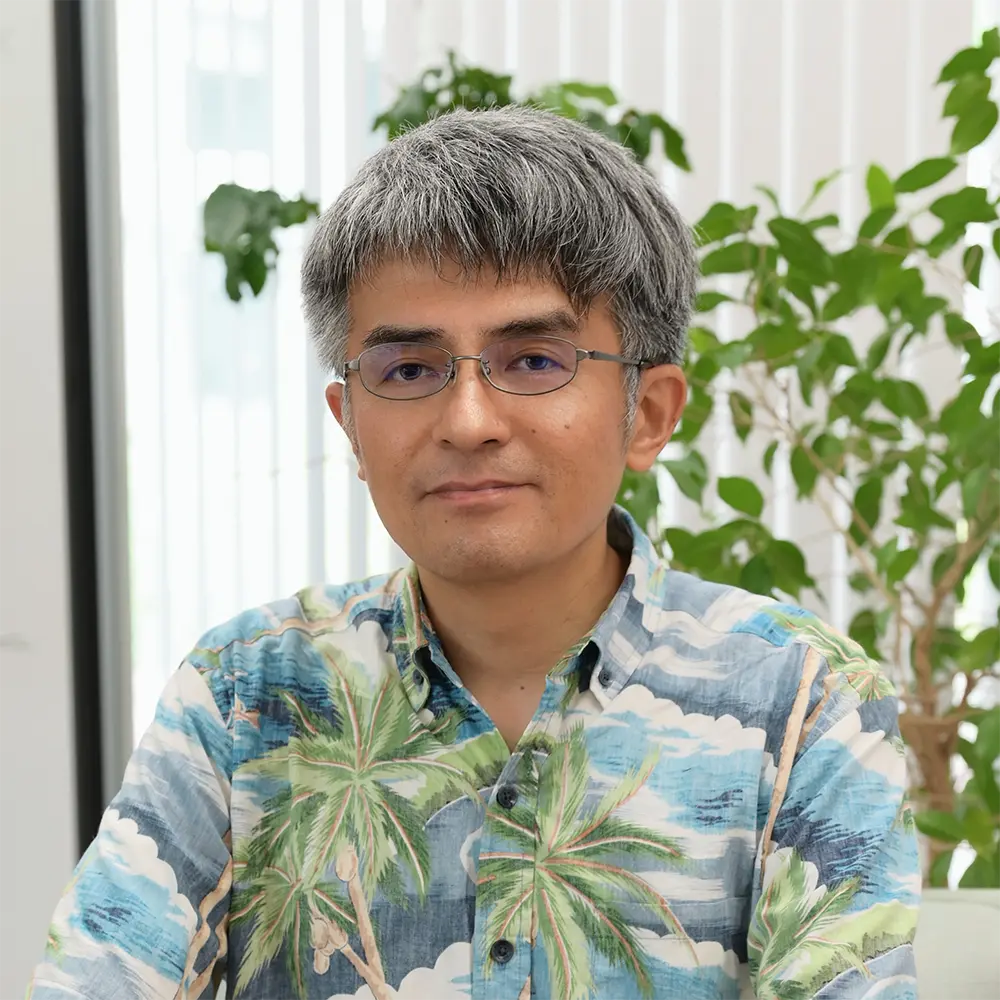
E-mail: sashida-gr

TEL:
Members:

MS: Reseach support associate/Lab manager
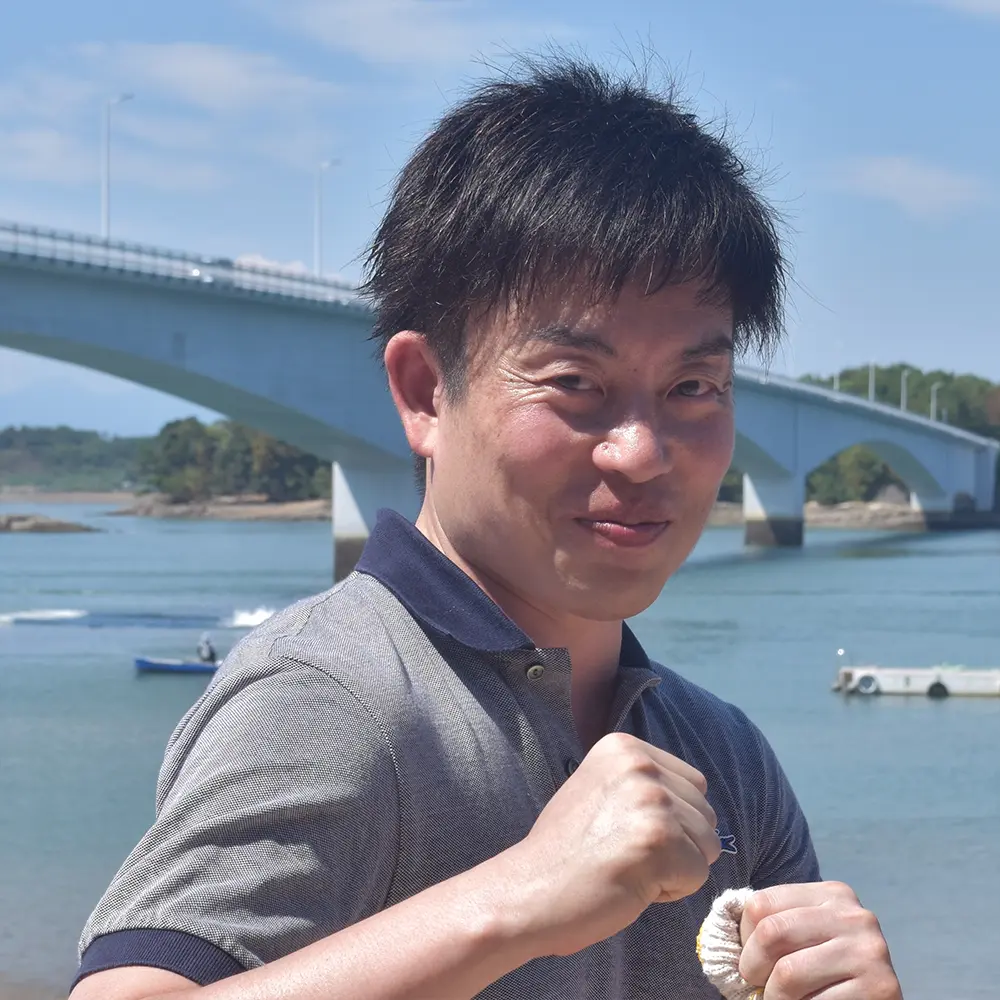
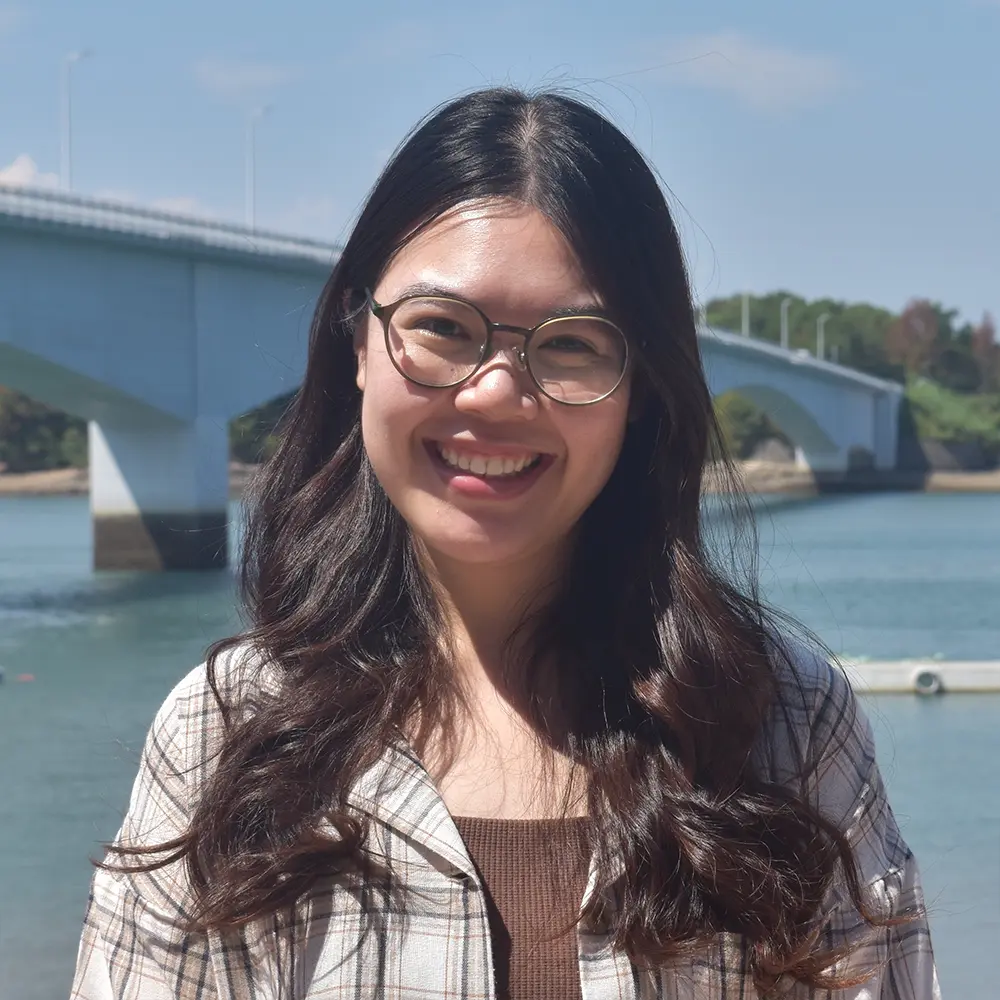
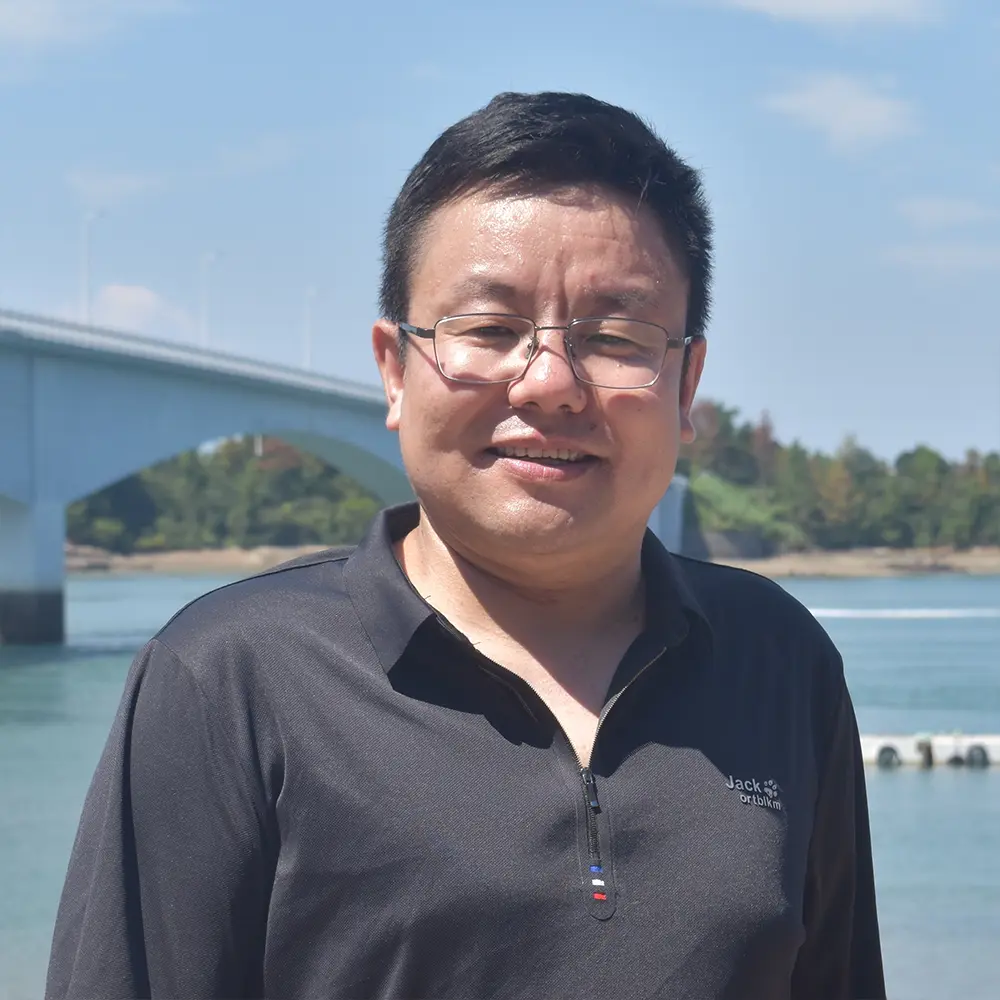
MD: PhD student (D3, Kumamoto University)
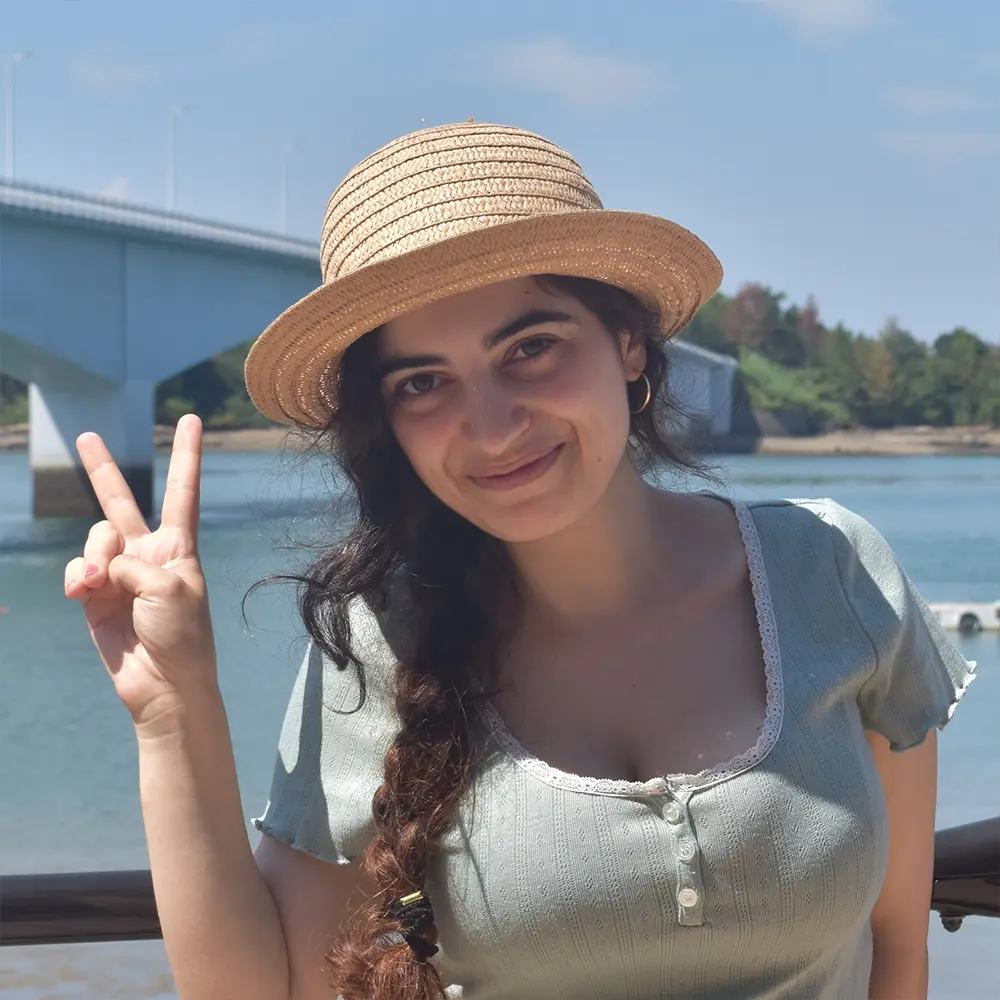
MD: PhD student (D3, Kumamoto University)
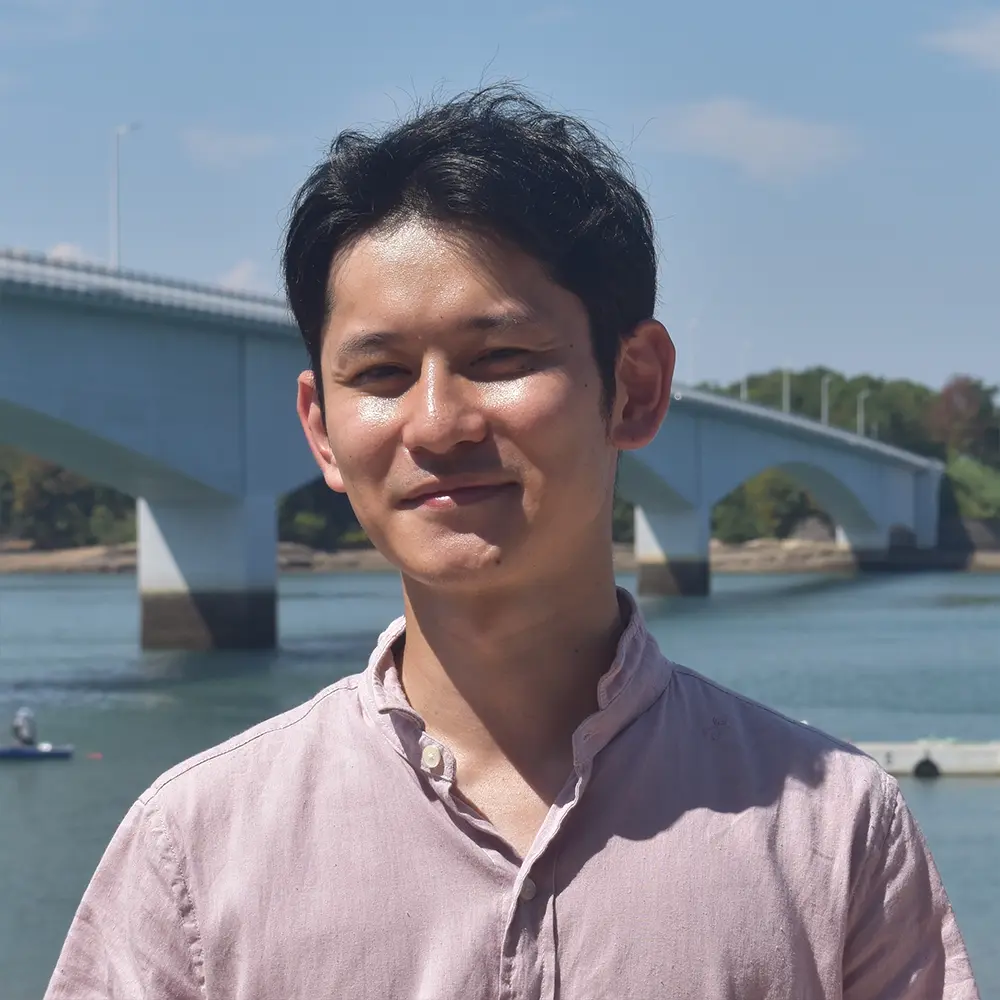
MD: PhD student (D2, Kumamoto University)

BS: PhD student (M1, Kumamoto University)

DDS: part-time Reseach assistant

MD, PhD: Visiting Professor
Alumni:
At Kumamoto University from December 2014 to March 2025
- Sara Kaneda: part-time research assistant/MD student (-2016)
- Takako Ideue, MD: Research Specialist (-2018)
- Daiki Tanaka, MD: part-time research assistant/MD student (-2019)
- Gaber Abdallah Abdallah, MD: Visiting research fellow (-2020)
- Nanami Kurita: part-time research assistant/MD student (-2020)
- Kuan Jew Win, MD, PhD: Research fellow (JSPS-RONPAKU, PhD from Kumamoto University) (2017-2020) (Current position; Professor, University of Malaysia, Sarawak)
- Supannika Sorin, BS: Visiting PhD student (2020-2021)
- Ayaka Maeda, MD: part-time research assistant/MD student (-2021)
- Wang Yongjie: PhD student (2020-2022)
- Yonoshin Hayashi: part-time research assistant/MD student (-2022)
- Takako Yokomizo, PhD: Post-doctoral researcher (2015-2022) (Current position; Asistant Professor, The University of Tokyo)
- Yuqi Sun, MD, PhD: PhD student (PhD from Kumamoto University) (2017-2022)
- Sho Kubota, PhD: Asistant Professor (2015-2023) (Current position; Asistant Professor, Okayama University)
- Ratthaphong Phumphu, BS: Visiting PhD student
- Mariko Morii, PhD: Post-doctoral researcher (JSPS-RPD) (-2024) (Current position; Asistant Professor, Okayama University)
- Jie Bai, PhD: Post-doctoral researcher (2015-2024) (Current position; Post-doctoral Researcher, UT San Antonio)
- Mayumi Hirayama, DDS, PhD: Post-doctoral researcher (2022-2025)
- Mihoko Iimori, MT: Reseach assistant/Lab manager (2015-2025)
Achievement
Selected research articles:
- Kubota S, Sun Y, Morii M, Bai J, Ideue T, Hirayama M, Sorin S, Eerdunduleng, Yokomizo-Nakano T, Osato M, Hamashima A, Iimori M, Araki K, Umemoto T, Sashida G*. EMBO Chromatin modifier Hmga2 promotes adult hematopoietic stem cell function and blood regeneration in stress conditions. EMBO J 2024; 43(13): 2661-2684.
- Morii M, Kubota S, Iimori M, Yokomizo-Nakano T, Hamashima A, Bai J, Nishimura A, Tasaki M, Ando Y, Araki K, Sashida G*. TIF1β activates leukemic transcriptional program in HSCs and promotes BCR::ABL1-induced myeloid leukemia. Leukemia 2024; 38(6): 1275-1286.
- Yokomizo-Nakano T, Hamashima A, Kubota S, Bai J, Sorin S, Sun Y, Kikuchi K, Iimori M, Morii M, Kanai A, Iwama A, Huang G, Kurotaki D, Takizawa H, Matsui H, Sashida G*. Exposure to microbial products followed by loss of Tet2 promotes myelodysplastic syndrome via remodeling HSCs. J Exp Med 2023; 220(7): e20220962.
- Kawano S, Araki K, Bai J, Furukawa I, Tateishi K, Yoshinobu K, Usuki S, Nimmo RA, Kaname T, Yoshihara M, Takahashi S, Sashida G*, Araki M*. A gain-of-function mutation in micro-RNA-142 is sufficient to cause the development of T-cell leukemia in mice. Cancer Sci 2023. 114(7): 2821-2834.
- Umemoto T, Johansson A, Ahmad SAI, Hashimoto M, Kubota S, Kikuchi K, Odaka H, Era T, Kurotaki D, Sashida G, Suda T*. ATP citrate lyase controls hematopoietic stem cell fate and supports bone marrow regeneration. EMBO J 2022. 41(8): e109463.
- Abdallah MG, Niibori-Nambu A, Morii M, Yokomizo T, Yokomizo T, Ideue T, Kubota S, Teoh VSI, Mok MMH, Wang CQ, Omar AA, Tokunaga K, Iwanaga E, Matsuoka M, Asou N, Nakagata N, Araki K, AboElenin M, Madboly SH, Sashida G*, Osato M*. RUNX1-ETO (RUNX1-RUNX1T1) induces myeloid leukemia in mice in an age-dependent manner. Leukemia 2021. 35(10): 2983-2988.
- Bai J, Yokomizo-Nakano T, Kubota S, Sun Y, Kanai A, Iimori M, Harada H, Iwama A, Sashida G*. Overexpression of Hmga2 activates Igf2bp2 and remodles transcriptional program of Tet2-deficient stem cells in myeloid transformation. Oncogene 2021; 40(8): 1531-1541.
- Shide K, Kameda T, Kamiunten A, Ozono Y, Tahira Y, Yokomizo-Nakano T, Kubota S, Ono M, Ikeda K, Sekine M, Akizuki K, Nakamura K, Hidaka T, Kubuki Y, Iwakiri H, Hasuike S, Nagata K, Sashida G, Shimoda K*. Calreticulin haploinsufficiency augments stem cell activity and is required for onset of myeloproliferative neoplasms. Blood 2020; 136(1): 106-118.
- Yokomizo-Nakano T, Kubota S, Bai J, Hamashima A, Morii M, Sun Y, Katagiri S, Iimori M, Kanai A, Tanaka D, Oshima M, Harada Y, Ohyashiki K, Iwama A, Harada H, Osato M, Sashida G*. Overexpression of RUNX3 represses RUNX1 to drive transformation of myelodysplastic syndrome. Cancer Res 2020; 80(12): 2523-2536.
- Kubota S, Tokunaga K, Umezu T, Yokomizo-Nakano T, Sun Y, Oshima M, Tan KT, Yang H, Kanai A, Iwanaga E, Asou N, Maeda T, Nakagata N, Iwama A, Ohyashiki K, Osato M*, Sashida G*. Lineage-specific RUNX2 super-enhancer activates MYC and promotes the development of blastic plasmacytoid dendritic cell neoplasm. Nature Commun 2019; 10: 1653.
- Wang C, Oshima M, Sato D, Matsui H, Kubota S, Aoyama K, Nakajima-Takagi Y, Koide S, Matsubayashi J, Mochizuki-Kashio M, Nakano-Yokomizo T, Bai J, Nagao T, Kanai A, Iwama A*, Sashida G*. Ezh2 loss propagates hypermethylation at T-cell differentiation-regulating genes to promote leukemic transformation. J Clin Invest 2018; 128(9): 3872-3886.
- Sashida G*, Wang C, Tomioka T, Oshima M, Aoyama K, Kanai A, Mochizuki-Kashio M, Harada H, Shimoda K, Iwama A*. The loss of Ezh2 drives the pathogenesis of myelofibrosis and sensitizes tumor-initiating cells to bromodomain inhibition. J Exp Med 2016; 213(8): 1459-1477.
- Mochizuki-Kashio M, Aoyama K, Sashida G, Oshima M, Tomioka T, Muto T, Wang C, Iwama A*. Ezh2 loss in hematopoietic stem cells predisposes mice to develop heterogeneous malignancies in an Ezh1-depenedent manner. Blood 2015; 126(10): 1172-83.
- Wang C, Sashida G, Saraya A, Ishiga R, Koide S, Oshima M, Isono K, Koseki H, Iwama A*. Depletion of Sf3b1 impairs proliferative capacity of hematopoietic stem cells but is not sufficient to induce myelodysplasia. Blood 2014; 123(21): 3336-43.
- Sashida G*, Harada H, Matsui H, Oshima M, Yui M, Harada Y, Tanaka S, Mochizuki-Kashio M, Wang C, Saraya A, Muto T, Hayashi Y, Suzuki K, Nakajima H, Inaba T, Koseki H, Huang G, Kitamura T, Iwama A*. Ezh2 loss promotes development of myelodysplastic syndrome but attenuates its predisposition to leukaemic transformation. Nature Commun 2014; 5: 4177.
- Muto T#, Sashida G#, Oshima M#, Wendt GR, Mochizuki-Kashio M, Nagata Y, Sanada M, Miyagi S, Saraya A, Kamio A, Nagae G, Nakaseko C, Yokote K, Shimoda K, Koseki H, Suzuki Y, Sugano S, Aburatani H, Ogawa S, Iwama A*. Concurrent loss of Ezh2 and Tet2 cooperates in the pathogenesis of myelodysplastic disorders. J Exp Med 2013; 210(12): 2627-39. #equal contribution
- Tanaka S, Miyagi S, Sashida G, Chiba T, Yuan J, Mochizuki-Kashio M, Suzuki Y, Sugano S, Nakaseko C, Yokote K, Koseki H, Iwama A*. Ezh2 augments leukemogenicity by reinforcing differentiation blockage in acute myeloid leukemia. Blood 2012; 120(5): 1107-17.
- Zhang Y#, Yan X#, Sashida G#, Zhao X, Rao Y, Goyama S, Whitman SP, Zorko N, Bernot K, Conway RM, Witte D, Wang QF, Tenen DG, Xiao Z, Marcucci G, Mulloy JC, Grimes HL, Caligiuri MA, Huang G*. Stress hematopoiesis reveals abnormal control of self-renewal, lineage bias, and myeloid differentiation in Mll partial tandem duplication (Mll-PTD) hematopoietic stem/progenitor cells. Blood 2012; 120(5): 1118-29. #equal contribution
- Sashida G, Bae N, Di Giandomenico S, Asai T, Gurvich N, Bazzoli E, Liu Y, Huang G, Zhao X, Menendez S, Nimer SD*. The Mef/Elf4 transcription factor finetunes the DNA damage response. Cancer Res 2011; 71(14): 4857-65.
- Sashida G, Liu Y, Elf S, Miyata Y, Ohyashiki K, Izumi M, Menendez S, Nimer SD*. ELF4/MEF activates MDM2 expression and blocks oncogene-induced p16 activation to promote transformation. Mol Cell Biol 2009; 29(13): 3687-99.
Selected reviews:
- Yokomizo-Nakano T, Sashida G*. Two faces of RUNX3 in myeloid transformation. Exp Hematol 2021; 97: 14-20.
- Sashida G, Oshima M, Iwama A*. Deregulated Polycomb functions in myeloproliferative neoplasms. Int J Hematol 2019; 110(2): 170-178.
- Sashida G*, Iwama A*. Multifaceted role of the polycomb-group gene EZH2 in hematological malignancies. Int J Hematol 2017; 105(1): 23-30.
- Sashida G, Iwama A*. Epigenetic regulation of hematopoiesis. Int J Hematol 2012; 96(4): 405-12.
- Ohyashiki JH*, Sashida G, Tauchi T, Ohyashiki K. Telomeres and telomerase in hematologic neoplasia. Oncogene 2002; 21: 680-687.
Guest editor:
- Sashida G*. Recent advance in MDS research. Exp Hematol 2024. Comments on Cammenga, Exp Hematol 2024; Nishimura K, et al. Exp Hematol 2024; Xu JJ, Viny AD, Exp Hematol 2024; Merz AMA, Platzbecker U. Exp Hematol 2024.
- Sashida G*. Stem cell regulation and dynamics in myeloid malignancies. Int J Hematol 2023 Jun;117(6):789-790. Comments on Fang Y-C, et al. Int J Hematol 2023; Hayashi Y, et al. Int J Hematol 2023; Jin Z, et al. Int J Hematol 2023; Abdallah MG, et al. Int J Hematol 2023.
Grant
Selected Grants from Japan Society for the Promotion of Science (JSPS):
- Grants-in-Aid for Scientific Research (C) (2011-2013); Principal Investigator, 5,070,000 Yen
- Grants-in-Aid for Scientific Research (C) (2014-2016); Principal Investigator, 4,810,000 Yen
- Grants-in-Aid for Scientific Research (B) (2016-2018); Principal Investigator, 18,590,000 Yen
- Grants-in-Aid for Scientific Research (B) (2018-2020); Principal Investigator, 17,290,000 Yen
- Grants-in-Aid for Challenging Research (Pioneering) (2019-2020); Principal Investigator, 6,500,000 Yen
- Grants-in-Aid for Scientific Research (B) (2021-2023); Principal Investigator, 17,420,000 Yen
- Grants-in-Aid for Challenging Research (Pioneering) (2021-2022); Principal Investigator, 6,500,000 Yen
- Core-to-Core Program Advanced Research Network; Integrative approach for normal and leukemic stem cells (2020-2024); Coordinator, 72,765,000 Yen
- Grants-in-Aid for Scientific Research (B) (2024-2026); Principal Investigator, 18,460,000 Yen
Grants from Japan Agency for Medical Research and Development (AMED):
- P-PROMOTE (2022-2024); Principal Investigator
- Integrated Neuroscience Program (2024-2026); Co-Principal Investigator (PI, Dr. Nariko Arimura)
- ASPIRE (2025-2029); Co-Principal Investigator (PI, Dr. Atsushi Iwama)
Education
Supervised Theses:
- Kuan Jew Win, MD, PhD; PhD from Kumamoto University (2017-2020): Low prevalence of the BCR-ABL1 fusion gene in a normal population in southern Sarawak. Kuan JW, Su AT, Tay SP, Fong IL, Kubota S, Su'ut L, Osato M, Sashida G. Int J Hematol. 2020; 111(2): 217-224.
- Supannika Sorin, MS; MS from Khon Kaen University (2021): Sorin S, Kubota S, Hamidi S, Yokomizo-Nakano T, Vaeteewoottacharn K, Wongkham S, Waraasawapati S, Pairojkul C, Bai J, Morii M, Sheng G, Sawanyawisuth K, Sashida G. HMGN3 represses transcription of epithelial regulators to promote migration of cholangiocarcinoma in a SNAI2-dependent manner. FASEB J. 2022. 36(7): e22345.
- Yuqi Sun, MD, PhD; PhD from Kumamoto University (2017-2022): The acidic domain of Hmga2 and the domain's linker region are critical for driving self-renewal of hematopoietic stem cell. Sun Y, Kubota S, Iimori M, Hamashima A, Murakami H, Bai J, Morii M, Yokomizo-Nakano T, Osato M, Araki K, Sashida G. Int J Hematol. 2022; 115(4): 553-562.
- Ai Hamashima, MS; MS from Kumamoto University (2023-2024): Bone marrow transplantation induced a distinct transcriptional profile in HSC from that in primary aged mice.
Internship Students:
- Ullah Md. Emdad (January 2017, from Bangladesh)
- Tabassum Rahman Sunfi (January 2019, from Bangladesh)
- Aizhan Baltabay (October 2019, from Kazakhstan)
- Arusyak Ivanyan (September 2022, from Armenia)
- Teona Paresishvili (November 2023, from Georgia)
- Abdalla Essam Mohamed (January 2025, from Egypt)
Vacancies
Lab secretary:
We are looking for a lab secretary to start working in April 2026. If you are interested in working with us, please email me at sashida-gr(at)igakuken.or.jp.
Lab technician:
We are looking for a few technical assistants for our laboratory to start working in April 2026. If you are interested in working with us, please email me at sashida-gr(at)igakuken.or.jp.
Students, Clinical fellows and Postdocs:
If you are interested in studying with us on normal and malignant hematopoiesis, please email me at sashidag(at)kumamoto-u.ac.jp or sashida-gr(at)igakuken.or.jp. We are always happy to hear from good motivated people, such as postdocs, clinical fellows and undergraduate students, who want to get a PhD degree from Kumamoto University or other universities.